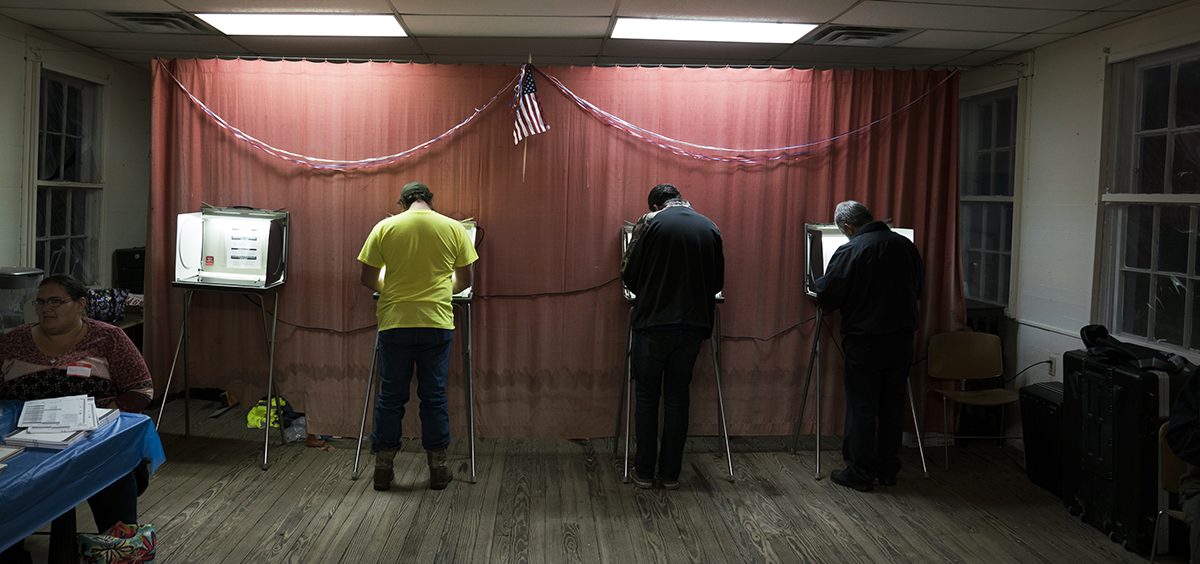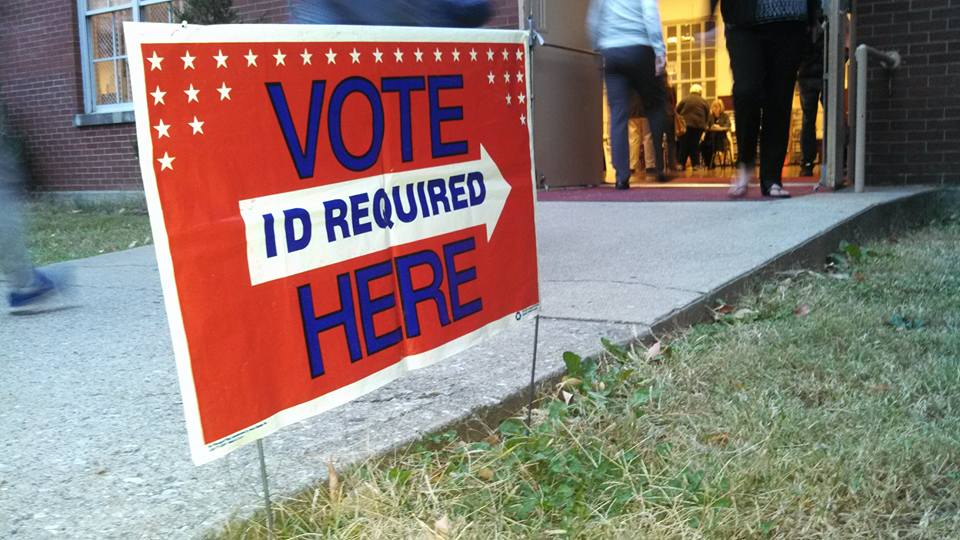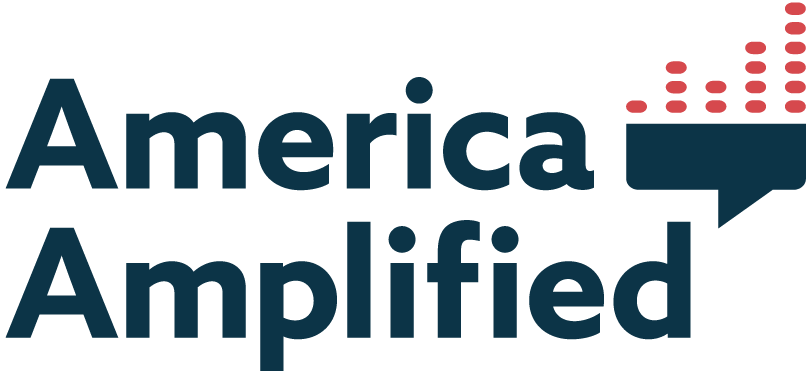News

Ohio Valley Election Officials Prepare For Unprecedented Pandemic Election
By: Alana Watson | Ohio Valley ReSource
Posted on:
BOWLING GREEN, Ky. (OVR) — Governors, Secretaries of State, and other state and local election officials throughout the Ohio Valley are preparing for an unprecedented election during a global pandemic. The COVID-19 pandemic has forced local governments to change practices that have been the same for decades, and to do so in a highly charged political environment.
Some of the main changes are safety precautions suggested by the Centers for Disease Control and Prevention. State officials in Kentucky, Ohio, and West Virginia are ensuring residents feel comfortable voting in person if they choose to, while making adjustments for those who are concerned about contracting COVID-19.
“All the COVID-19 protocols are going to be in place; social distancing, face masks for the workers, face shield and face masks for voters, hand sanitizer, and gloves,” West Virginia’s Secretary of State Mac Warner said. “I want people to pick their own level of comfort when it comes to voting. If they can vote in person, do so. That’s the gold standard.”
Warner is among the election officials expanding voting options to include absentee or mail-in voting and early in-person voting. As they work to meet these pandemic challenges, officials may also be paving the way for broader voter access and higher turnout in a region marked by historically low voter participation and high barriers to ballot access.
West Virginia
West Virginia election officials are mimicking what was done during their primary election on June 9. Secretary of State Warner said the state had perhaps the most successful primary during the COVID-19 pandemic with no cases of the virus reported due to in-person voting. The original primary date for the state was May 12. It was moved to give election officials time to make necessary changes. Warner says he’s confident the state won’t hit any bumps in the road in November.
“We did our after-action review after the primary. Got the lessons learned through the clerks, from the post office, and others,” Warner explained. “The good thing about the general is we now know what those issues are, and we are out educating people on the front end.”
Warner says normally 6,000 to 7,000 people vote absentee in the state. But this fall he’s expecting roughly 250,000 of the state’s 1.8 million people to vote by mail for the general election. To help with the increase in mail-in ballots, West Virginia county clerks can start processing absentee ballots during early voting for the upcoming election.
“We use both the governor’s emergency powers as well as mine and the chief election’s officer to give interpretations to rules,” Warner said. “We couldn’t change any laws, we stayed consistent with West Virginia laws, but with some of the rules we were able to provide flexibility. And this was based on the county clerks’ request.”

Ohio
Election officials in Ohio are also expecting a large absentee vote. Jon Keeling is the communications director for Ohio’s Secretary of State, Frank LaRose. Keeling stressed that this will be the first time many people will be casting their ballots by mail. Ohio officials are allowing county clerks to contact voters directly if there’s a problem, eliminating additional mailing. Keeling says Ohio voters should provide clerks their phone numbers and emails.
“So that if there is an issue with their absentee ballot request form or their absentee ballot, their county board will be able to very quickly reach out to that voter,” Keeling explained.
Like West Virginia, Ohio is also allowing county clerks to start the verification process of absentee ballots early, but Keeling said people should still expect to see a delay in results.
“Every vote is going to be connected. So, what that means is on election night you’ll have those unofficial results, but it won’t be until the official canvas is completed approximately two to three weeks later where we will see those final results,” Keeling said.
This will also be the first general election that Ohioans can leave their ballots in a county drop box rather than sending the ballot via mail.
Kentucky
Kentucky has the most changes out of the three states. Every county has to submit election plans that have to be approved by Secretary of State Michael Adams, a Republican, and Gov. Andy Beshear, a Democrat. Adams said one of the biggest changes they have made is having three weeks of early voting to help space out crowds.
“There’s no one Election Day. We’ve got like 20 election days,” Adams said. “Starting October 13 any voter can vote in person without an appointment necessary, without an excuse necessary, just show up and vote.”
Each county in Kentucky will have at least one early voting polling location. Many county election boards are still finalizing those locations.
Kentucky also has a controversial new photo ID requirement. Voters will need to show their driver’s license, military ID, college ID, or government ID when they go to their polling location. Voters who don’t have a photo ID will be able to get a provisional ballot.
Adams is expecting a historic voter turnout in Kentucky and nationwide, predicting turnout more than twice the vote in the primaries.
“This is a very politically charged time,” Adams explained. “People have strong opinions about the president in particular, in favor or against, so they all want to go vote.”
This will also be the first general election in which many former felony offenders in Kentucky can cast their ballots. Gov. Beshear signed an executive order that enfranchised thousands of people who had completed their sentences for non-violent crimes. Prior to that, Kentucky was among just a few states that denied the vote to anyone with a felony record.
The Path Ahead
Although the pandemic has caused states to alter normal election practices, experts believe this could be the easiest it’s been to vote in the region for any election. University of Kentucky law professor Joshua Douglas believes most states are making voting more accessible. Douglas researches voting rights and election laws and recently wrote a book about ways to expand voting rights.
“When we make voting easier, more people participate and we see this in state after state that has expanded vote by mail,” Douglas explained. “That is breaking down barriers to the ballot box, everywhere that we pass these ‘pro-voter’ policies turnout goes up.”
Douglas said these “pro-voter” policies need to increase in non-pandemic times to help alleviate voter disenfranchisement and low voter participation.
“That can only be good for our democracy,” Douglas said. “If we think about it a democracy is based on the consent of the governed, which is one of the founding principles from the Declaration of Independence. Higher turnout only means that more of us are consenting to the government that we elect.”
Historically, in many parts of the Ohio Valley voter turnout is significantly lower than national averages. Douglas believes the low turnout in Appalachian counties in eastern Kentucky is related to restrictive voting laws.
The three Secretaries of State for Kentucky, Ohio and West Virginia — all Republicans — are encouraging mail-in voting and want people to make the right call for themselves about how to vote.
President Donald Trump has made claims over the past few months that absentee and mail-in voting will lead to voter fraud. Last week, he said the ballots were “a complete disaster.” But NPR reports that the FBI found no evidence of security problems associated with mailed ballots in the upcoming election.
The region’s elections officials also say this election could help shape future elections, but only if people speak up about how the process should be changed. Most of the adjustments done for this extraordinary pandemic election year were done through executive authority and emergency powers.
“It’s all stuff that we did on our own and it all goes away when this election is over. It just turns back into a pumpkin again,” Kentucky’s Secretary Adams explained. “So, if people like this, they’ve got to let their legislators know.”
Adams said now that people have been exposed to the possibilities, there may be a stronger push to make voting easier in future elections.


